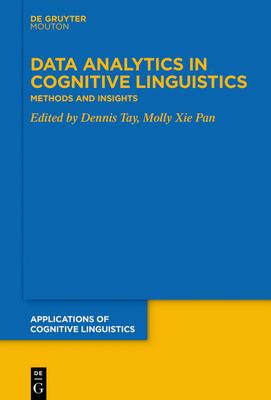Contemporary data analytics involves extracting insights from data and translating them into action. With its turn towards empirical methods and convergent data sources, cognitive linguistics is a fertile context for data analytics. There are key differences between data analytics and statistical analysis as typically conceived. Though the former requires the latter, it emphasizes the role of domain-specific knowledge. Statistical analysis also tends to be associated with preconceived hypotheses and controlled data. Data analytics, on the other hand, can help explore unstructured datasets and inspire emergent questions.
This volume addresses two key aspects in data analytics for cognitive linguistic work. Firstly, it elaborates the bottom-up guiding role of data analytics in the research trajectory, and how it helps to formulate and refine questions. Secondly, it shows how data analytics can suggest concrete courses of research-based action, which is crucial for cognitive linguistics to be truly applied. The papers in this volume impart various data analytic methods and report empirical studies across different areas of research and application. They aim to benefit new and experienced researchers alike.
